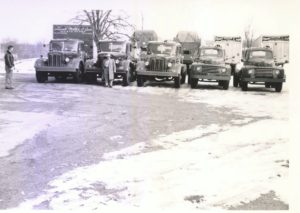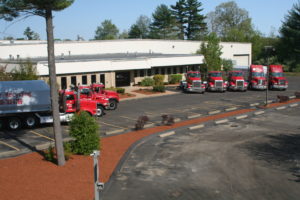Our business began in the early 1940’s, when Frank Miller began collecting scrap paper, rags, metals, old furniture and more. Basically, anything that could be graded, sorted, cleaned, refurbished, and sold at a profit. We have seen many changes in the recycling industry over these 75 years.

Rags were a large “recyclable” commodity back then. They were sorted by textile type, (keeping in mind there where very few “types” back then.) The fibers were then used in the production of fine paper making.
The market for this material disappeared when paper became more prevalent, and recyclable paper fiber was used.
Paper production then grew, in the 50’s, 60’s and 70’s. Newspapers, magazines, and catalogs created both supply and demand for recycled fiber. (Remember all those big fat phone books, Sears catalogs, and heavy school books?) The paper industry flourished.

We are now in the middle of another cycle of “change”. Paper demand is disappearing, with only a few segments of the industry on a “growth” trend. Telephone books, school and colleges texts, newspapers, have all been or are being replaced by electronics. Even small paper items such as toll tickets are being replaced with transponders. In fact, I predict that in the next 10-15 years the newsprint industry will be gone, and we’ll consume all of our news electronically.
If not for the growing demand for corrugated boxes due to online shopping, and for tissue and toweling, there will be minimal demand for recycled fiber. Within the next few decades we could see a total transformation of the paper recycling industry. Without the demand for finished product there will be no demand for recyclable fiber.
Metal scrap is also diminishing. Just take a walk through a Home Depot or Lowes and see what the majority of their products are made of. Faucets are mostly plastic rather than copper or brass, copper tubing is being replaced with plastic, even gutters and downspouts that were once aluminum are now plastic. When is the last time you saw aluminum siding?
It is always difficult to predict the future. As a 4th generation family owned business it is also difficult to experience these changes and wonder what the future holds for the future of our company and our industry. As we look forward to the next generation coming up at Miller Recycling, we continue to adapt and evolve. Contact us today to discuss all of your current and future recycling needs.

